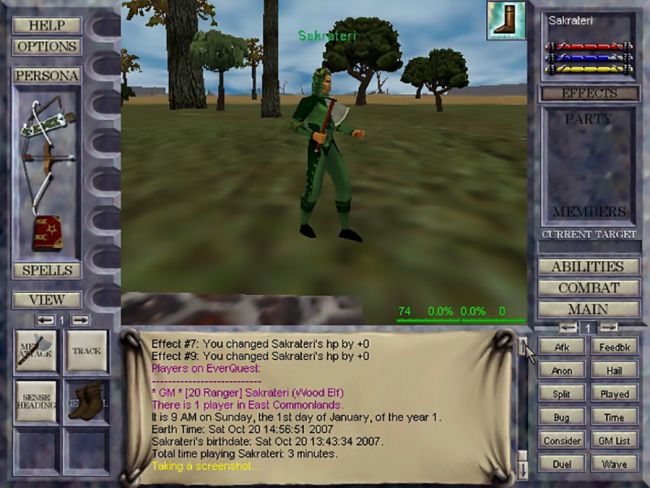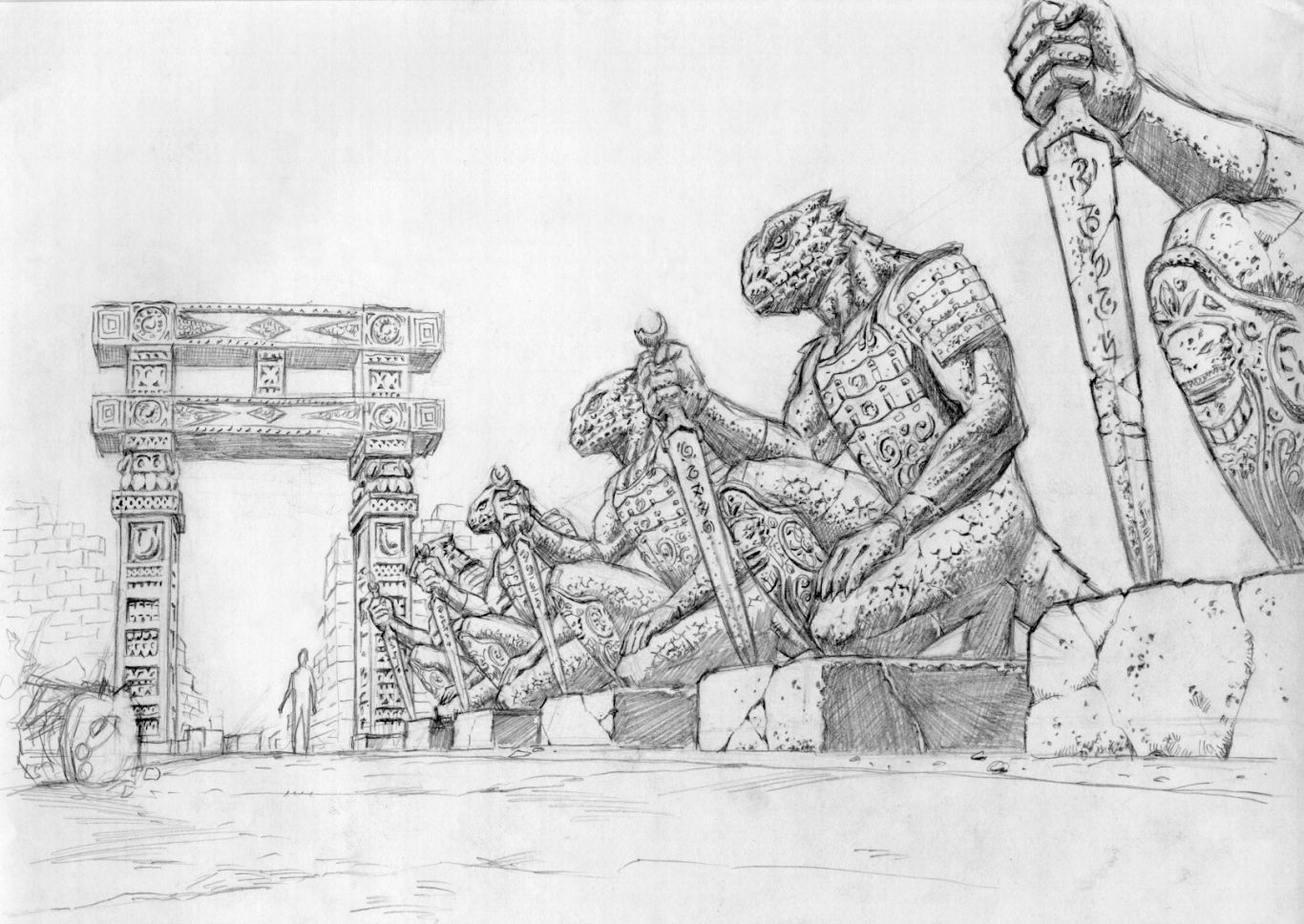
In late 2001, an economist by the name of Edward Castronova caused serious unrest in the world of economics by publishing an article claiming that the isolated area of Norrath has a stronger currency than the Japanese yen - a statement that was particularly bold because Norrath had less than one million inhabitants. he himself was created just a couple of years ago, and at the same time did not exist physically. Yes, Norrath was completely virtual and inhabited only by players of the video game EverQuest.
Released in 1999, EverQuest has become an incredibly popular and influential Massively Multiplayer Online RPG (MMORPG). The game was set in the setting of the magical fantasy world of Norrath, which at the peak of success could boast an impressive (at that time) indicator of half a million subscribers. EverQuest came to Castronova's field of vision almost as much as almost everyone else - he just thought it was an interesting game, judging by the description.
However, gradually understanding it, he noticed the amazing aspects of the development of the virtual economy within the game. His observations culminated in his publication on the Social Science Research Network of a humorous yet superbly crafted and innovative article Virtual Worlds: A First-Hand Account of Market and Society on the Cyberian Frontier.("Virtual Worlds: An Eyewitness Account of the Market and Society on the Cyberspace Frontier"). Kastranova himself admitted: "I thought that perhaps seventy-five people would read this article, and that would be wonderful."
Nevertheless, it quickly reached more than 16 thousand downloads (and today this figure is closer to 50 thousand). Although it does not seem that these are large numbers, you need to remember about the context - this was a scientific article published in an online scientific journal. Needless to say, the number of downloads made it the most downloaded article in the history of the Social Science Research Network, which currently contains almost 50 thousand scientific papers, including many of them written by Nobel Prize winners.
Why has this article generated such excitement in the world of economics? Economist Janis Varufakis says: “Economic theory has reached a dead end - the last real discoveries were made in the 1960s. But not because we are stupid. We hit a solid barrier - the future of science is experimenting and simulation, and the video game community gave us a chance to do all of this. ”
Castronova's find, in fact, became an economist's dream - virtual worlds that researchers can use to scientifically analyze various concepts of their field of knowledge using the example of large data sets and real people inhabiting these worlds. Or, as the Washington Post journalist saidBrad Plummer, in virtual worlds, “the data is more extensive. In a video game, it’s easier to do experiments on an economy-wide scale — experiments that, for obvious reasons, cannot be done on countries. ”
In short, economists in academia were intrigued by Castronova's paper and its implications for future research.
What did Kastronova find out? After a meticulous study of the data related to the world, Norrat was shocked to find out that in terms of gross national income per capita (GNP per capita) in real dollars, Norrath was in 77th place in the world, at that time located exactly between Russia and Bulgaria.
How was this possible for a virtual world that had only virtual currency?
At the peak of popularity in EverQuest, the sale of in-game items flourished, and at one of the periods the player could buy almost everything he needed in the game, regardless of the rarity and power of the item. It was enough to pay for it with hard currency.
Although Sony, the publisher of the game, has made several attempts to end the practice, claiming, among other things, that all items sold are its intellectual property and that the gamers are caught, selling in-game items and avatars has become a thriving industry on sites like Ebay.

In fact, Brock Pierce, who previously played childhood roles in films (best known for his roles in The Powerful Ducklings and First Child of the Country , as well as his adult work in cryptocurrency) even founded a surprisingly the successful Internet Gaming Entertainment Ltd (IGE) that sold such virtual goods for real money. The company hired a fairly large staff of low-wage workers working in Norrath and in the real world for such responsibilities. like exchanging goods, as well as creating avatars and obtaining virtual goods for further sale.
Kastronova analyzed over 600 illegal sales outside of Norrath on sites like Ebay and then simply compared them to the value of the item in-game in Norrath's main currency, platinum.
In doing so, Castronova found that the relative value of one piece of platinum compared to the US dollar was $ 0.01072. Although it does not seem like a particularly large amount, Castranova noted that at that time the value of platinum was higher than the Japanese yen and Italian lira.
Having obtained this value, Castronova was able to roughly calculate many other interesting indicators of Norrath's economy. For example, it turned out that the average resident of Norrath earned about $ 3.42 per hour (today, taking into account inflation, this is $ 5 per hour), if we take into account the cost of items and in-game currency that they could actually receive on average for a typical hour of play.

Taking into account also the approximate time that the most enthusiastic players spent on the game (according to data obtained by Kastronova after polling more than three thousand players), the economist calculated:
80 — . 80 273,60 . 1 000 , — 12 000 . 8 794 .
Studying the level of enthusiasm of players at different times, Kastronova determined that despite the extreme novelty of the game, the average player in EverQuest already has $ 3,000 worth of goods in the game.
But that's not all - then Kastronova was able to roughly calculate Norrath's gross national income based on the value of the (completely virtual) goods he produced in 2001. What was the final amount? Approximately $ 135 million.
While that doesn't look that impressive either when divided by the approximate total population of Norrath, it means that the virtual kingdom's GNI per capita was $ 2,266. This indicator, as we said above, theoretically puts the computer state in 77th place among the countries of the Earth.
Naturally, this information attracted the interest of Castronova's colleagues, as well as his other observations about the virtual world and its economy.
For example, according to Castronova, one of the most intriguing aspects was that despite Sony's efforts to give everyone equal opportunity, financial inequality was spreading rapidly among the residents of Norrath.
Additionally, Castronova noticed that, as in the real world, the wealthiest players often accumulated their wealth and used their vast resources to pay poorer characters to do all the pointless work they didn't want to waste time on, essentially becoming pseudo-employers who kept the lion's share of all income from the work of the plebeians.

Kastronova describes her own gameplay as a low-level player without resources as follows: “My problem is that I don't have enough equipment. In fact, I was naked and armed with only one club - a caveman in the world of knights. My poverty was overwhelming - no amount of rat fur would be enough to buy even a simple tunic at ridiculously high vendor prices. "
Naturally, in the process of the development of the game, the whole principle of "initial equality" was also destroyed for some. This happened thanks to those markets in which players with income in the real world could simply buy any goods for real money and enter the game much more powerful and skillful than a player without such an opportunity.
After the publication of Kastronova's article, this man, who called himself a "wretched scientist" and "dumb from the public school", was able to achieve level-up in real life - he received a position at the Indiana University in Bloomington as a professor, teaching communication and cognitive science. and also became known as "the founder of the field of virtual economy".
In the process of the emergence of other virtual worlds with complex economies, economists and other scientists continued to study them, because they became excellent "Petri dishes" for observing how various variables lead to changes in the economy and human behavior.
On the other hand, gaming companies like Valve began hiring economists to help them manage virtual worlds. As economist Robert Bloomfield puts it, “If you’re building a 100,000-user game that has buy and sell items, then you need an economist to help tune the system so it doesn’t get out of hand.”
As for Castronova, he concluded his breakthrough article with a lyrical digression - a reflection on the potential virtual worlds that could be created using the new technology:
. , . , , , . , . , Walmart-.

: